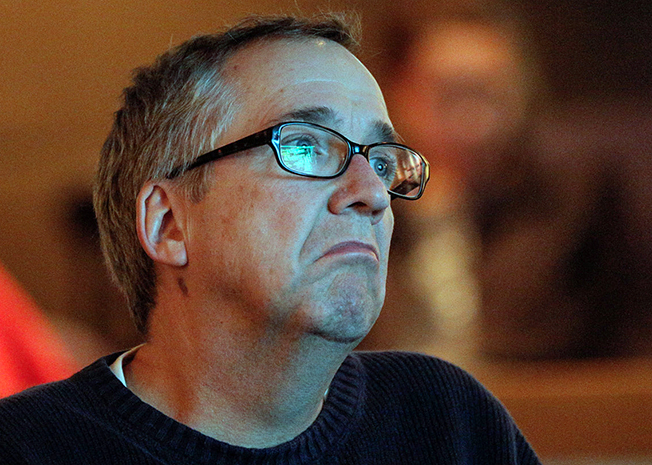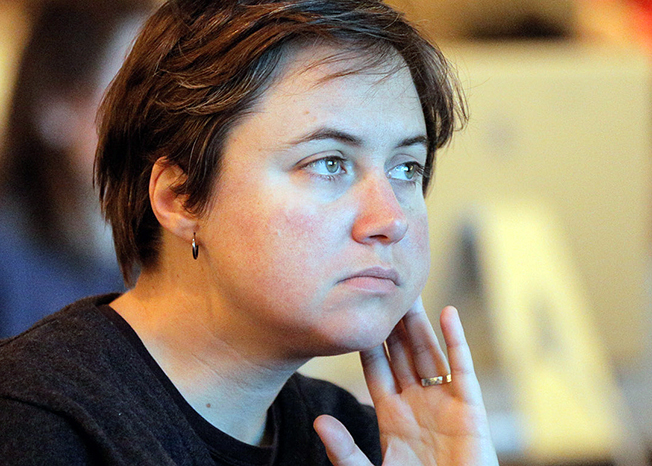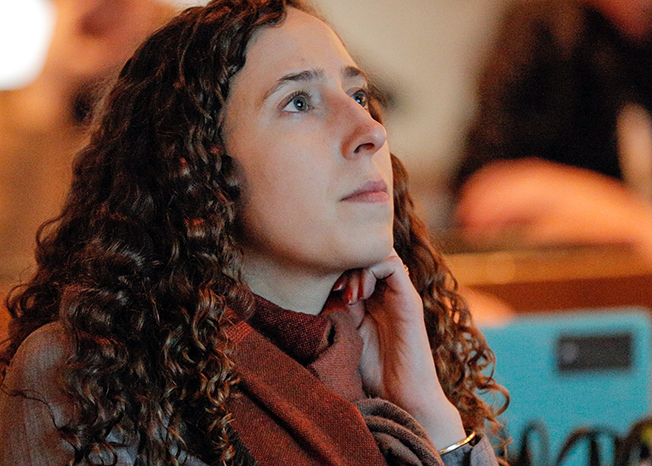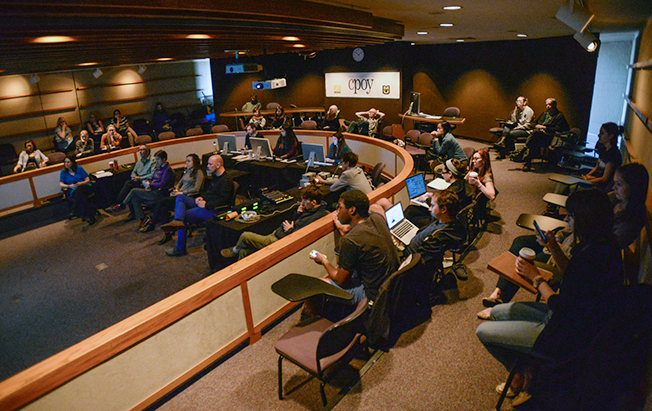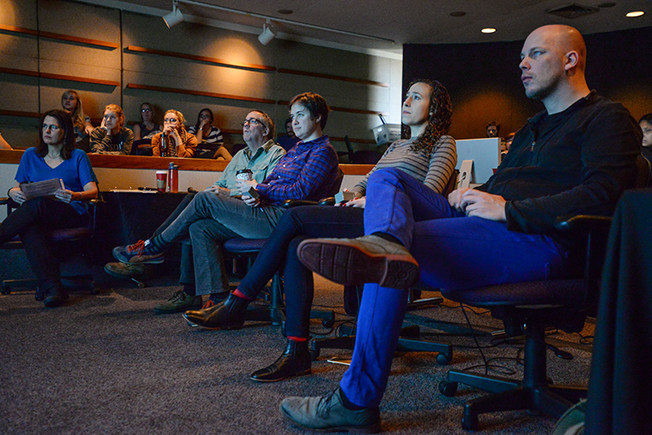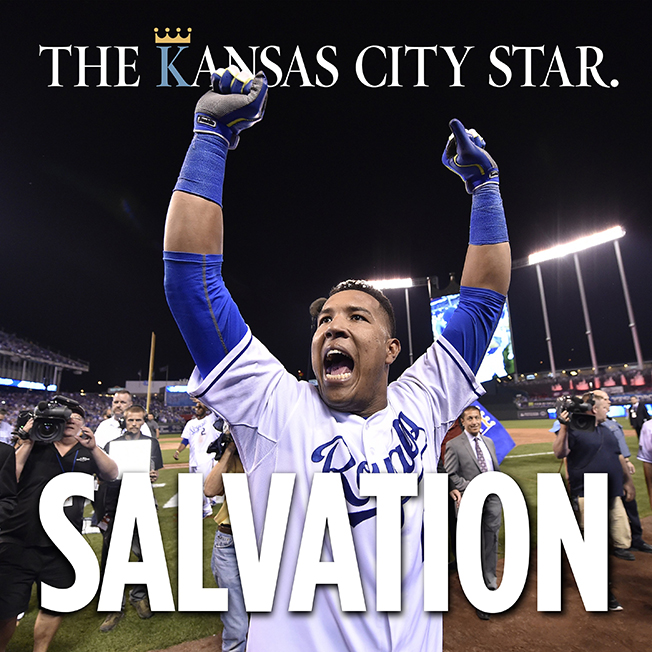CPoY: What impact did winning cPOY have on your work or professional career?
Buchanan: I have to admit that when I was preparing my portfolio to send in to cPOY, I had been so focused that year on producing a portfolio that would be strong and effective and when I laid it all out on the day before I had to send it in, I was so depressed because I thought “It’s not there.”
But I came to realize that sometimes you can push too hard and you ultimately have to have faith in the work that you are doing and keep pushing forward. It reminded me of the great Ira Glass quote:
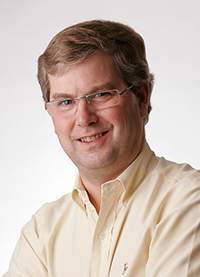
“Nobody tells this to people who are beginners, I wish someone told me. All of us who do creative work, we get into it because we have good taste. But there is this gap. For the first couple years you make stuff, it’s just not that good. It’s trying to be good, it has potential, but it’s not. But your taste, the thing that got you into the game, is still killer. And your taste is why your work disappoints you. A lot of people never get past this phase, they quit. Most people I know who do interesting, creative work went through years of this. We know our work doesn’t have this special thing that we want it to have. We all go through this. And if you are just starting out or you are still in this phase, you gotta know its normal and the most important thing you can do is do a lot of work. Put yourself on a deadline so that every week you will finish one story. It is only by going through a volume of work that you will close that gap, and your work will be as good as your ambitions. And I took longer to figure out how to do this than anyone I’ve ever met. It’s gonna take awhile. It’s normal to take awhile. You’ve just gotta fight your way through.”
Ultimately the CPoY did give me some assurance that I was headed in the right direction and to keep pushing forward and that maybe I wasn’t as bad as I thought at the time.
CPoY: What is the latest photo project you've been working on?
Buchanan: My life is a true variety of work that ranges from editorial to corporate to events and I wish I could say that editorial was still a big part of my business but unfortunately there is less space and pay for it so I am still applying my experience and skills in other directions, but at it’s root, it’s just photojournalism applied to different ends.
This last weekend I was out in LA working with Dan Dry (POY winner back in the late 70s for the Courier-Journal) and working with his team that covers the Breeders’ Cup Thoroughbred World’s Championships, which he and I have covered since the first races in 1984. It’s a test of sports photography, human interest and all on tight deadlines…all the things I still love to this day.
CPoY: Why did you choose and continue to pursue photography?
Buchanan: I love the variety. In everything about photojournalism, there is always something new. And even if there isn’t, it’s up to YOU to find something fresh.
I always admired the staff photographers who were professional enough that even though they were being sent out to photograph the same event that they had photographed time and again, they still came back with something new and innovative. I always vowed that I didn’t want to become one of those photographers that became burned out and bitter and lost the drive to always find something new or fresh. One of my teacher’s, Jack Corn would always say “You’re only as good as your last frame.” Wise words.
CPoY: How does one develop a personal photographic style?
Buchanan: When you start out, you look at others work and try to figure out how they did it. Sometimes you mimic it, sometimes you start to see things from their perspective so, like a piece of clothing, you have to try it on, but it doesn’t necessarily mean it’s your style or you’ll buy it.
You have to take a variety people’s of advice on composition and framing and then start to add your own knowledge of a topic or event and lay that on top of endeavoring to create images that can have more complexity while being simple and straight forward. Balance all those things and you are just beginning to develop a style. A mix of technique, knowledge, insight, and simplicity that combine to make the viewer feel they are right there and a part of the scene; immersed in the scene that they immediately understand it and yet there is more complexity there that they want to study the photo more. Then I think if you are achieving any of these things, you are starting to develop a style that is your own.
CPoY: How has the medium of photography changed for you since entering CPoY?
Buchanan: I think it has changed in some ways: technologically and with some more tools to use, but fundamentally, it’s still about making great photos that grab people’s attention and convey a message quickly, concisely and with depth and conviction.
Yes, it is very immediate and can be around the world in seconds but it can get lost in a lot of chatter. So getting attention for your work can be good and bad.
CPoY: What advice do you have for student-photographers on entering photo contests?
Buchanan: I would say that early in your career it is probably best to go with simple, direct and clean. With time your work will gain more depth and have more complexity. Like young writers who are starting out, their work and success is usually concise, directed and spare of too many words. So maybe your photography should be the same. Direct, concise and not too much clutter and focusing on making photos that put your viewers right in the middle of your images. You can usually succeed with that same formula as a writer.
CPoY: What advice do you have for student photographers/young professionals who are ready to graduate or start in the field?
Buchanan: I recently saw a video interview of Gregory Heisler; his point being that business part of photography and the medium where it is used is always changing that what it was like for me will not be the same as it will be for them. He points out that relationships are important in building a career and also that having a vision of your own to become successful but yet be true to yourself. It’s a great, must see interview.
Always push yourself to find something interesting in whatever you do, no matter how boring or mundane the assignment…and the more you shoot what you know and what you love, it will help you be the best at what you do. Always be curious and want to learn more and it will inform your images and yourself. Remember, you only as good as your last frame…
Interviewed conducted by T.J. Thomson and Alex Scott.
